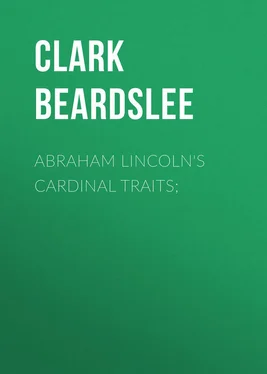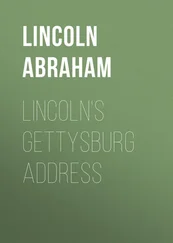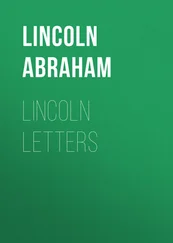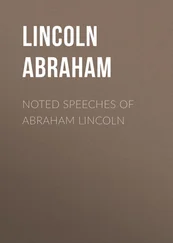Clark Beardslee - Abraham Lincoln's Cardinal Traits;
Здесь есть возможность читать онлайн «Clark Beardslee - Abraham Lincoln's Cardinal Traits;» — ознакомительный отрывок электронной книги совершенно бесплатно, а после прочтения отрывка купить полную версию. В некоторых случаях можно слушать аудио, скачать через торрент в формате fb2 и присутствует краткое содержание. Издательство: Иностранный паблик, Жанр: foreign_antique, foreign_prose, на английском языке. Описание произведения, (предисловие) а так же отзывы посетителей доступны на портале библиотеки ЛибКат.
- Название:Abraham Lincoln's Cardinal Traits;
- Автор:
- Издательство:Иностранный паблик
- Жанр:
- Год:неизвестен
- ISBN:нет данных
- Рейтинг книги:3 / 5. Голосов: 1
-
Избранное:Добавить в избранное
- Отзывы:
-
Ваша оценка:
- 60
- 1
- 2
- 3
- 4
- 5
Abraham Lincoln's Cardinal Traits;: краткое содержание, описание и аннотация
Предлагаем к чтению аннотацию, описание, краткое содержание или предисловие (зависит от того, что написал сам автор книги «Abraham Lincoln's Cardinal Traits;»). Если вы не нашли необходимую информацию о книге — напишите в комментариях, мы постараемся отыскать её.
Abraham Lincoln's Cardinal Traits; — читать онлайн ознакомительный отрывок
Ниже представлен текст книги, разбитый по страницам. Система сохранения места последней прочитанной страницы, позволяет с удобством читать онлайн бесплатно книгу «Abraham Lincoln's Cardinal Traits;», без необходимости каждый раз заново искать на чём Вы остановились. Поставьте закладку, и сможете в любой момент перейти на страницу, на которой закончили чтение.
Интервал:
Закладка:
These observations upon the immediate directness, the integral whole-heartedness, and the deathless eagerness of Lincoln's friendliness, if thoughtfully compared together, reveal that these distinctive phases of his outpouring good-will are in nature identically the same, and spring from an identical source. This essential coincidence, this mutual convergence deserves attention. It intimates wherein the very essence and being of his neighborly kindness consists. And in Lincoln's life this indication of the precise whereabouts and substance of the essential and innermost quality and being of human kindliness is certain and clear, as in hardly any other man. His benignance in his dealings with men is of well-nigh unparalleled openness and freedom from all admixture and alloy. Lincoln's kindness embodies and conveys Lincoln's self. In every favor from him he is in the gift. In the center of all the friendliness that is characteristic of Lincoln, Lincoln himself stands erect and entire, offering and commending in every case his full-sized, undivided self. This is the core and this the circumference, this is the sum and this the substance of his good-will. It is rich with all his personal wealth, solid with all his personal worth. In him an act of friendship was an inauguration of personal copartnership. In his good-will was all the energy of his life. In his benefactions he gave himself. Just so with his compassions. With the sorrows of humanity it was his way to enter into personal fellowship. This was the form and being of all his generosity. His mastery over all malice when facing a foe, his abounding charity when judging a wrong, his hearty gladness in the presence of human joy, his cordial ways in greeting friends, his fatherly affection for his boy, his love for his native land, his pity in presence of the bereft, his sadness at sight of wounds, his readiness to share evenly with all his Nation all that guilty Nation's painful discipline – all this variety and plenitude of ample, open-hearted tenderness towards other men was alike and always the complete and conscious contribution of himself. In brief, in full, and finally, Lincoln's friendliness, through all its beautiful versatility, was a free and facile, a full and total, personal self-devotion. This is the common content giving all its value to all the forms of his human kindliness.
His Pureness – Life
In the exposition just foregoing, the thought has been drawn into allusions to Lincoln's premonitions or aspirations towards immortality, for the Union, if not for himself. This was in the course of an effort to find the spring-head of his kindliness. And it culminated in the suggestion that deep within Lincoln's being there was enshrined an assurance, however unconfessed or even half unconscious, of personal immortality. And that from within this shrine of living hope, common to him with every man, he drew his inspiration and his very pattern of a national Union and a national peace that would endure forever.
Here is something that calls for examination, for in this we touch a radical quality of Lincoln's moral being. This eager craving after permanence was in him an appetite that could never be fed or satisfied by any things that perish. In itself and in its nutriment there is an irrepealable call for something indefeasable, something utterly superior to all fear of death, something never amenable to any form of dissolution or decay, something spiritually pure, and essentially kindred to the essential being of a deathless soul.
The matter may be approached to start with by saying some things negatively. Lincoln was centrally in no sense a materialist. He was indeed firmly sensitive to the physical majesties of this continent, though in his day they were hardly half disclosed. He calculated with carefulness our material capacities for expansion in power and wealth. He foresaw our certain outward growth into a puissant Nation, the coveted and ample resort and refuge and home of hordes of men from other lands. In his own well-seasoned and resourceful physique he felt and knew the worth of physical virility. He could thoughtfully compute the glittering values, the goodly financial revenues, the days and months and total seasons of physical idleness and delights that accrue to human owners from the unrequited toil of human slaves. And in the current civil war he completely understood that no less a concern than the perpetuity of the American Union was pending upon contests largely consisting of encounters of physical prowess, of tests of muscular endurance and strength.
But not in calculations such as these did his thoughtful studies of human welfare take ultimate resort, or find final rest. His conception of the ideal state, of the ideal citizen, of the ideal life, was not constructed or inspired from carnal elements. He noted with life-long sadness the sordid baseness inseparably attending the fact of owning or being a slave. He deeply saw that those battles in the Wilderness were no mere conflicts of beasts. And never could he imagine or allow that his personal weight, and force, and worth were ratable by gymnastic tests. It was not upon things like these that Lincoln's attention and hope were fixed, when his hopes and plans for our prosperity took form. To the whole world of his material environment he was marvelously indifferent. On every perusal of his life one grieves at the story of his poverty, and the sad infrequency and meagerness in his daily life of the pleasures and recreations which are for the comfort and happiness of men in material things. But in this he seems as though unconscious of any disappointment. For himself as for the Nation, and for the Nation as for himself, his satisfaction and confidence were not born and fed of things that perish in their use. Luxury in food or attire, however toothsome or attractive to other natures, stirred but the feeblest hankerings, if any at all, in him. Towards sensualism of any sort, whether gluttony, drunkenness or lust, his sound and temperate manliness did not incline. And in his estimate of personal character his eye and respect did not rest in outer attitudes, on printed, age-long codes of manner. He was no slave of stately ceremonies, or artificial etiquette. Nor in religion did he bind his tongue to creeds however hoary, nor to rituals however august. He swore not by the oaths of any sect, however ancient and renowned. Neither in this mountain nor in that did he worship God.
But on the other hand, and now to speak affirmatively, Lincoln lived no penury-stricken life. The resources within his personality were well-nigh incalculable. Few men in all our national catalogue have been endowed by God with so sterling and abundant interior wealth. And of all American patriotic benefactors few indeed have left in their single individual name and right such priceless legacies to their native land. What is life? What is human life? Wherein, completely and precisely wherein, is man distinguishable from the beast? For answer, study Lincoln and see. In the full development of such a study many massive verities will unfold. But the feature in Lincoln's manhood, which this chapter is set apart to designate and clarify, is the simple purity, the elemental spirituality of all his elemental traits. His dominant sentiments, his primary convictions, his main and all-mastering decisions were never born to die. They were instinct with life, with life indeed, a life never failing, ever more abundant and free.
This interior vitality, this unalloyed and undecaying purity may be described one way as a real idealism. But in ascribing idealism to Lincoln, it needs to be said at once that Lincoln's idealism, real and glorious as it must surely be confessed to be, was transparently and unvaryingly practical. In one way it may be defined as hope. A waiting hope was a standard characteristic of Lincoln's attitude. His sorrowful eye held fast to things as yet unrealizable. It is impressive to see how often and how fondly he mentioned the future, the "vast future," as he termed it, of our American career. The secret of the beauty and of the power of some of his loftiest and most spontaneous rhetoric is due to just this solemn eagerness towards the coming days. As one comes to study more intently into the outlay of his heroic strength, his struggle and toil are seen to be leashed about his consuming wish that the Nation in its undivided might could be unified about the speedy fulfillment of his prophetic aims. He never forgot the mighty lesson, nor lost the living inspiration of his own advancement from humblest station of ignorance and toiling poverty to the presidency. That transformation he loved to humbly hold before the attention of his fellow Americans, as a pattern of what might anywhere occur again. He loved to linger upon the possibilities of upward movement in the ranks of all laboring men. Large place and honorable position were given to this arousing theme in his first annual message to Congress. This general topic – the far-set, soaring possibilities of human betterment – held constant and commanding eminence in the ranging measure of his eagle-searching thought. For the Nation, and for its every inhabitant, he was a true idealist.
Читать дальшеИнтервал:
Закладка:
Похожие книги на «Abraham Lincoln's Cardinal Traits;»
Представляем Вашему вниманию похожие книги на «Abraham Lincoln's Cardinal Traits;» списком для выбора. Мы отобрали схожую по названию и смыслу литературу в надежде предоставить читателям больше вариантов отыскать новые, интересные, ещё непрочитанные произведения.
Обсуждение, отзывы о книге «Abraham Lincoln's Cardinal Traits;» и просто собственные мнения читателей. Оставьте ваши комментарии, напишите, что Вы думаете о произведении, его смысле или главных героях. Укажите что конкретно понравилось, а что нет, и почему Вы так считаете.












